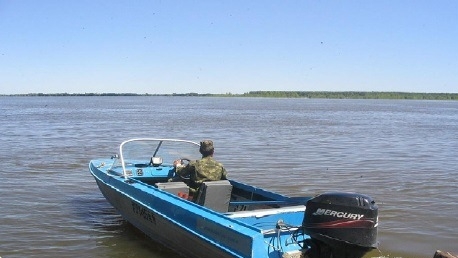Building upon the outcomes of the Hydrometeorological Services Modernization-I (Hydromet-I) project, Hydrometeorological Services Modernization Project-II aims to assist Roshydromet in reaching its medium-term objectives, which were outlined by the Government of the Russian Federation in the “Strategy of Activity in Hydrometeorology and Adjacent Areas up to 2030 (Taking into Account Climate Change)”.
The project helps to further enhance hydrological networks and services, since Hydromet-I covered less than 7 percent of those networks, and to improve information systems used in forecasting weather, climate and hydrological situations.
In September 2013, the Board of Executive Directors of the International Bank for Reconstruction and Development approved a loan worth US$60 million to co-finance with the Russian Federation the Hydrometeorological Services Modernization Project-II. The total cost of the project is US$139.5 million.
The project assists Roshydromet in further enhancing the national capacity to deliver reliable and timely weather, hydrological, and climate information to the Russian people, regional and municipal governments and economic sectors dependent upon weather, water and climate conditions. In addition, it aims to enhance Russia's capacity to integrate into the global system of meteorological services.
Project activities include:
- Strengthening information and communication technology (ICT) infrastructure and systems delivering weather, climate and hydrological data and information;
- Modernization of observation networks; and
- Strenghtening of institutions and regulations, improvement of service delivery to clients, and better preparedness for emergencies.
The project's activities will include the installation of state-of-the-art computers (with a capacity of 1 petaflops), deployment of up to 500 hydrological posts in the Volga River basin, modernization of up to 30 atmosphere probing network stations, infrastructure development of the Roshydromet modeling centers, and other important improvements.
The main objectives of the project are to:
- Improve accuracy and timeliness of key weather forecasts: accuracy of forecasts with forecast interval of 168 hours by the project completion will exceed 70% for major Russian cities, which is higher than the baseline for forecasts with forecast interval of less than 120 hours in 2011;
- Enhance accuracy in forecasting seasonal stream flows in the Volga river basin: accuracy of such forecasts will exceed 85-90% compared to the baseline of 75-80% in 2011;
- Increase the number of Roshydromet data users in economic sectors; expected growth – 5% per annum;
- Achieve a higher satisfaction level among the public and users of Roshydromet services, which by the completion of the project is expected to achieve 75% compared to the target of 65% in 2015.
In regions particularly prone to natural disasters, the project aims tol benefit the local population, regional and municipal governments, and economic sectors dependent upon weather, water and climate conditions. These include government agencies dealing with emergencies, natural disasters and civil defense, water management, civil aviation, transport, agriculture, health, power, forestry, housing and utilities, tourism, and commercial shipping management.
The project will also contribute to the development of a global hydrometeorological community, by expanding access to reliable and representative observation data received from the vast territory of Russia which will contribute to enhanced accuracy of global forecasts.
The project is co-financed using proceeds of a Specific Investment Loan extended under the IBRD terms that matures in 18 years, with a 5-year grace period and funds allocated by the Russian Federation. The project implementation is 5 years.



